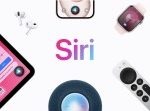Amid increasing global regulations over app stores and their commission structures, Google today announced the launch of a pilot program designed to explore what it calls “user billing choice.” The program will allow a small number of participating developers, starting with Spotify, to offer an additional third-party billing option next to Google Play’s own billing system in their apps. While Google already offers a similar system in South Korea following the arrival of new legislation requiring it, this will be the first time it will test the system in multiple worldwide markets.
Spotify said the pilot will roll out to all markets where Spotify Premium is available, which is 184 total markets worldwide. Google, however, cautioned the pilot will begin with select markets and build on the experience over time, and which regions would be first has yet to be determined.
As the debut pilot partner, Spotify will introduce both their own billing system alongside Google Play’s own when the pilot goes live. Google did not say which other developers it has lined up for future tests, but noted Spotify was a “natural first partner” on the effort given its reach as one of the “world’s largest subscription developers with a global footprint” and its “integrations across a wide range of device form factors.”
Spotify, of course, has also been one of the larger developers to push for regulatory changes to app stores’ existing billing systems and structure, having testified before Congress on the matter, joined lobbying groups, and backed app store legislation — including the Open Markets Act, which would require companies like Apple and Google to permit alternatives to existing app stores.
This fight is not just about wanting to have a more direct relationship with customers — it’s largely about money. Today’s app stores charge commissions ranging from 15%-30%, generally speaking, for apps offering subscriptions and in-app purchases through their platforms. Even in the case of South Korea where Google was required to permit alternative billing systems, it only reduced commissions by 4% for developers that directed users to their own billing systems.
Reached for comment, Spotify declined to say what sort of commission it would be paying Google as a part of this pilot test, noting that the agreement was confidential. But a company spokesperson suggested that the commercial terms met Spotify’s “standards of fairness.”
Google also declined to detail the commission structure involved. However, it noted that user choice billing, such as is the case in South Korea, will still involve a service fee regardless of which billing system the user chooses.
The new system is not immediately available as of this announcement. Rather, it will take Google’s product and engineering teams time to build the new experience over the coming months. Once live, users will see the two billing options presented side-by-side directly in the Spotify app. If they choose the Spotify payment method, they’ll continue to checkout with Spotify’s own billing system and user interface. If they choose Google Play Billing, they will transition into the Google Play Billing experience instead.
Spotify will also remain primarily responsible for customer communications regarding their Spotify subscription. But users who elected to pay via Google Play Billing will be able to see their Spotify subscription within the Google Play Store Subscription Center, as usual.
Spotify says it anticipates launching pilots of the first iteration of this system sometime later this year. It will be offered in every market where Spotify’s Premium subscription is available today, the company told TechCrunch.
“Spotify is on a years-long journey to ensure app developers have the freedom to innovate and compete on a level playing field,” said Alex Norström, Spotify’s Chief Freemium Business Officer, in a statement. “We’re excited to be partnering with Google to explore this approach to payment choice and opportunities for developers, users and the entire internet ecosystem. We hope the work we’ll do together blazes a path that will benefit the rest of the industry.
Google added that the pilot is still early days and the company will be working through various details about how the system works and how it appears as it builds and iterates on the experience alongside Spotify. While it wouldn’t disclose which partners may follow Spotify, Google told us its goal is to learn how to solve the challenges of offering billing choice across countries and developer types — a hint that some testers of the system could be smaller businesses. It said it will pilot the program in a few countries with a limited number of developers to start and would share more in the months ahead.
Ahead of this change, Google had already reduced commissions from 30% to 15% for the first $1 million of revenue developers earn using Play billing system each year, following a similar move by Apple. The company said that due to this pricing model shift, 99% of developers qualify for a service fee of 15% or less on its app store.
“Android has always been about openness and user choice,” stated Sameer Samat, Vice President, Product Management at Google. “This step is an important milestone for mobile app stores and I can’t imagine a better first partner than Spotify. They value choice as much as we do and understand the importance and continued investment in Android and Play to the health of the entire ecosystem. This is an exciting first step and we look forward to adding new partners and learning how this model could be expanded across the platform.”
Powered by WPeMatico






